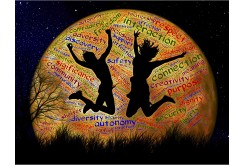The Iranian “Spring”: Will We Ever Learn? Once again, we are witnessing the ancient truth (going back to Plato). It seems that humankind is doomed endlessly to re-live an age-old story and then promptly forget it. The root cause of the Arab Spring was desperation, coupled with a failure of leadership. Iran represents only a variation on this common theme.Every organized society is, in effect, a “collective survival enterprise.” Our basic needs lie at the heart of our implicit social contract. Any regime that does not understand this biologically-based “common good” and act accordingly is ultimately doomed.










